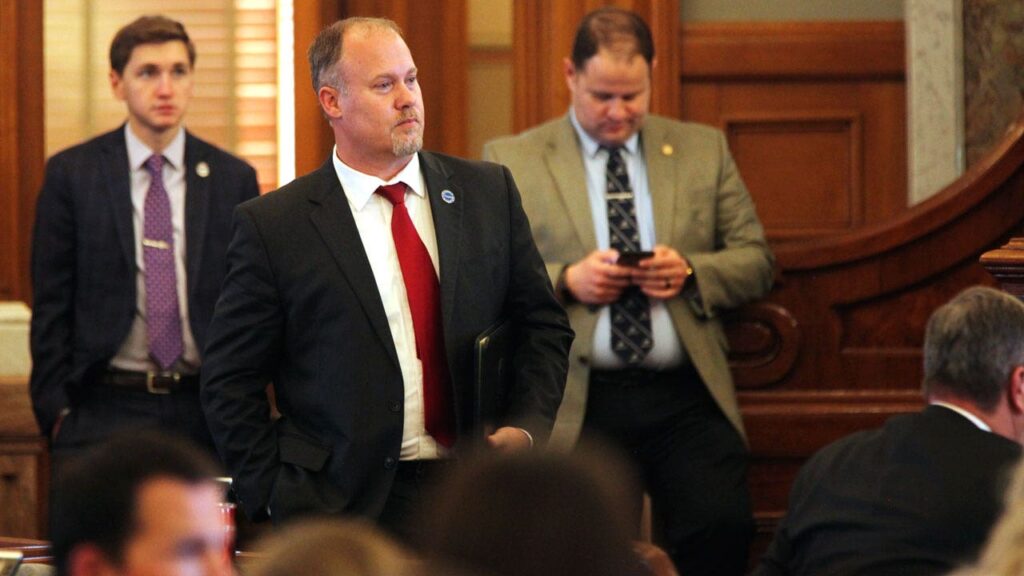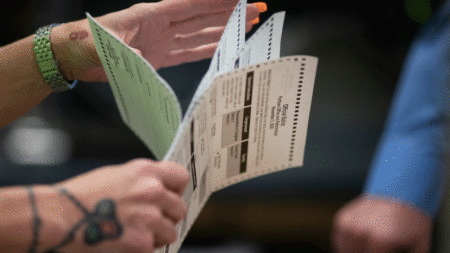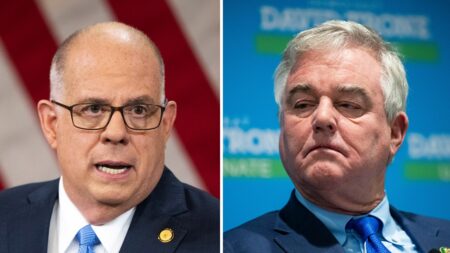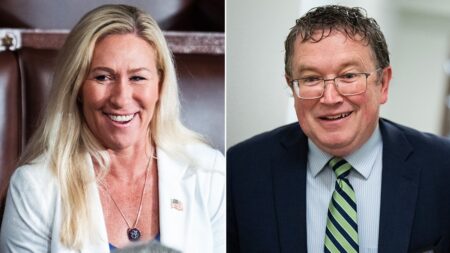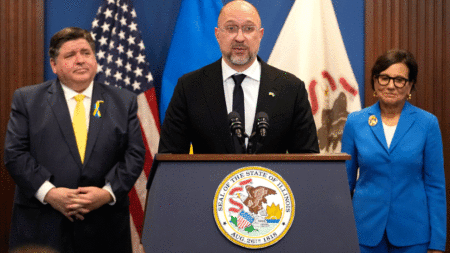A bipartisan group of rank-and-file lawmakers in Kansas scuttled a plan for cutting taxes Thursday, with Republicans defying GOP leaders and Democrats ignoring a personal appeal from the state’s Democratic governor.
The state House rejected a plan to cut taxes by about $1.4 billion over the next three years. It resulted from a deal between Gov. Laura Kelly and top Republicans in the GOP-controlled Legislature, but the House decided on a voice vote to have House and Senate negotiators draft a different plan. The vote was overwhelming enough that House members didn’t ask for a count or roll call vote.
Some critics, particularly Republicans, saw the plan as too small. Others, mostly Democrats, argued that it was weighted too heavily toward wealthy taxpayers because it would have dropped the state’s top personal income tax rate to 5.5% from 5.7%. Lawmakers in both parties thought it cut property taxes too little.
KANSAS REPUBLICANS USE ‘POWER OF THE PURSE’ TO TIE UP IMMIGRATION, DEI PROVISIONS IN BUDGET
“Let us rise up and be united and send a message that Kansans deserve more,” state Rep. Stephen Owens, a conservative central Kansas Republican who led the effort to reject the measure, said during the House’s short debate.
The House’s action came after the Senate approved the plan 38-1, a vote that normally would have been a good omen for a House vote. Instead, many House Democrats clearly planned to vote “no” going in, and House Republicans had a private meeting outside the Statehouse beforehand, apparently so that supporters of the plan could work on their colleagues.
Senate President Ty Masterson, a Wichita-area Republican, said the Legislature won’t consider another tax plan this week. Lawmakers are set to adjourn Friday for a three-week spring break and go back in session April 29 for a few days to wrap up business for the year. Masterson said another tax plan could be considered then.
The events in Kansas came two weeks after Georgia’s Republican-controlled Legislature passed personal and corporate income tax cuts that GOP Gov. Brian Kemp favored. Like Georgia, Kansas has a big budget surplus — still projected at more than $4 billion for the end of June 2025.
A dozen other states cut their income tax rates last year, according to the conservative Tax Foundation, but major tax cuts were thwarted in Kansas by the dispute between Republican leaders and Kelly over a GOP proposal for a single-rate, “flat” income tax, something Kelly said would benefit the “super wealthy.”
Kelly vetoed a plan with a single-rate income tax in January, and Republicans were unable to muster the two-thirds majorities in both chambers needed to override her action.
Republican leaders wavered on a single-rate income tax in recent weeks as they grew less willing to chance having no cuts enacted this year. All 40 state Senate seats and 125 House seats are up for election this year.
House Speaker Dan Hawkins told his colleagues during a brief debate that if they rejected the plan, they would face headlines of “House scuttles tax relief.”
“There isn’t a single one of us who wants to scuttle tax relief,” said Hawkins, a Wichita Republican.
Their private meeting before the vote was in the Kansas Contractors Association office near the Statehouse. When an Associated Press reporter showed up, Republican Rep. Patrick Penn, of Wichita, was urging colleagues to overcome their misgivings. GOP leaders forced the reporter to leave.
Later, after Owens finished his last speech against the bill, a few Republicans members could be heard saying quietly, “Here, here,” and some clapped and tapped on their desks when the plan failed.
And frustration with the plan and Kelly’s intervention was palpable when the governor met Thursday morning with House Democrats to sell it. She touted it as a big victory for Democrats.
“I can guarantee that the other side has gone as far as — a lot farther than — they wanted to go,” Kelly told them. “We should be embracing this and taking credit for it.”
Besides adjusting the state’s personal top income tax rate, the bill also would have eliminated state income taxes on retirees’ Social Security benefits, which kick in once a person receives $75,000 a year. It also would have increased the state’s standard personal income tax deductions, increased an income tax credit for child care expenses, reduced property taxes the state imposes to raise money for public schools and ended an expiring 2% sales tax on groceries six months early, on July 1.
The property tax was modest. For the owner of a home at the Kansas median value of $210,000, the annual savings would be about $140. A home’s appraised value can easily rise enough in a year to wipe out the cut.
“This, in my mind, is half a Band-Aid when the sore is still festering,” state Sen. Tom Holland, a northeastern Kansas Democrat and the only “no” vote in the Senate, said during debate.
Read the full article here





